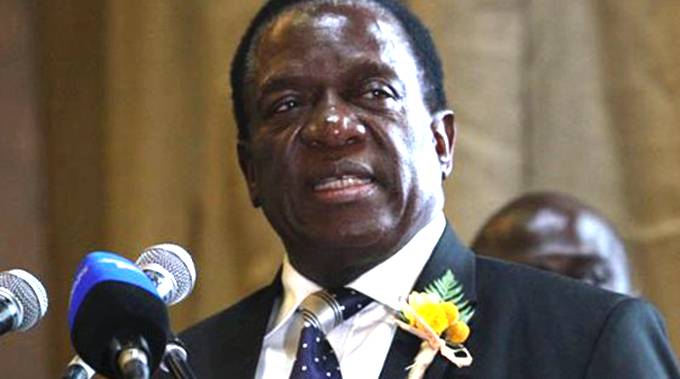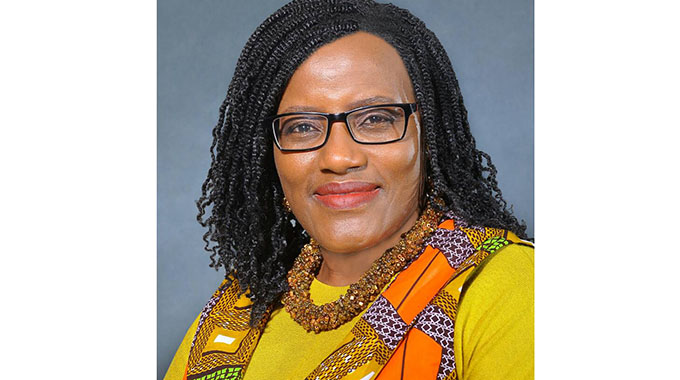Editorial Comment: Zimbabweans should start investing locally

Zimbabwe’s economic development since beginning of the year and going into the future is underpinned by President Mnangagwa’s Zimbabwe is Open for Business mantra, a paradigm that has put the country on the global map.
The Zimbabwe Is Open for Business catchphrase gained recognition almost as a slogan and has been cosetted in the policy matrices of Vision 2030 and the Transitional Stabilisation Programme (TSP) which Government is using to guide the country’s economic trajectory.
Foreign investor interest in Zimbabwe surged after President Mnangagwa took over in November last year from former President Robert Mugabe, who had led the country since Independence in April 1980.
President Mnangagwa’s ambition is to turn Zimbabwe into an upper middle-income economy by 2030, with a Gross National Income per capita of between $3 896 and $12 055 — a sure way of spreading the national cake among the people.
We believe nothing can stand in President Mnangagwa’s way as interest in the country grows on the back of his policies seeking to expeditiously achieve global reintegration, implementation of economic and political reforms and a greater focus on the economy than politics.
Foreign investment commitments this year as captured by the Zimbabwe Investment Authority (ZIA) was about $16 billion, as investors stampeded to gain first mover advantage to exploit opportunities presented by the new political administration.
It is every industrialist, investor and individual’s dream that, driven by programmes such the TSP, a reform agenda from October 2018 to December 2020, and the attendant austerity measures, things can turn for the better for Zimbabwe.
Companies that have shown serious commitment to invest in Zimbabwe, according to ZIA, include: Cypriot firm Karo Resources, which is investing $4,2 billion in a platinum mining operation, R and F of China which plans to invest $1,2 billion to resuscitate Zisco and Tsingshan Steel, also of China, which wants to invest $1 billion in a stainless steel plant.
Only last month, Cabinet approved for immediate implementation a total of 11 investment projects valued at $5,3 billion cutting across various economic sectors processed by the ZIA.
The projects include a joint venture partnership between Verify Engineering Private Limited and Magcor Consortium Group of Companies in coal to fertiliser manufacturing valued at $750 million.
A joint partnership between Mindlink Holdings and the Government of Zimbabwe to establish a bullion bank valued at $2 billion was also approved by Cabinet as was another joint venture between Hondius Capital Management, an asset management firm, and Infrastructural Development Bank of Zimbabwe to set the Zimbabwe Infrastructure, Housing and Development Bank for $800 million for infrastructure development.
Further, as the world demonstrated confidence in President Mnangagwa’s leadership, Cabinet endorsed a partnership between the Cold Storage Company and United Kingdom-headquartered Boustead Beef (Pvt) Ltd for a joint livestock farming investment valued at $130 million.
Most of these projects are proposals by foreign companies.
But it is common cause that the first investor in any land should be its local entrepreneur.
Therefore, as President Mnagwagwa and his team look for fresh capital from across the globe, we urge Zimbabweans locally and those in the Diaspora to be the early bird of their country by spearheading the investment drive in Zimbabwe, or at least joining the bandwagon.
As we move into the New Year and in line with President Mnagwagwa’s vision, people in the Diaspora with the capacity to influence potential investors should be torch bearers out there, marketing the investment opportunities available in the country.
Zimbabwean businesses should venture into partnerships with the incoming investors.
There is no doubt that many Zimbabwean businesses understand the terrain better, but lack capital in foreign currency to shake the market.
For its part, however, Government should exercise due diligence in screening individuals and companies coming into Zimbabwe in the guise of investing when all they want is to cleanse their ill-gotten money. Due diligence also means being on the look out for fly-by-night investors and fortune seekers who want to speculate on the stock market so they can easily transfer the money out the next day, thereby causing financial instability for the country’s still fragile economy.
Like the President warned in his Christmas Day message, it’s going to be a bumpy road ahead. It behoves every Zimbabwean to play their part. Foreigners can only come in to help.
They can’t do everything while we play economic refugees in foreign lands and waiting for things to get right.







Comments